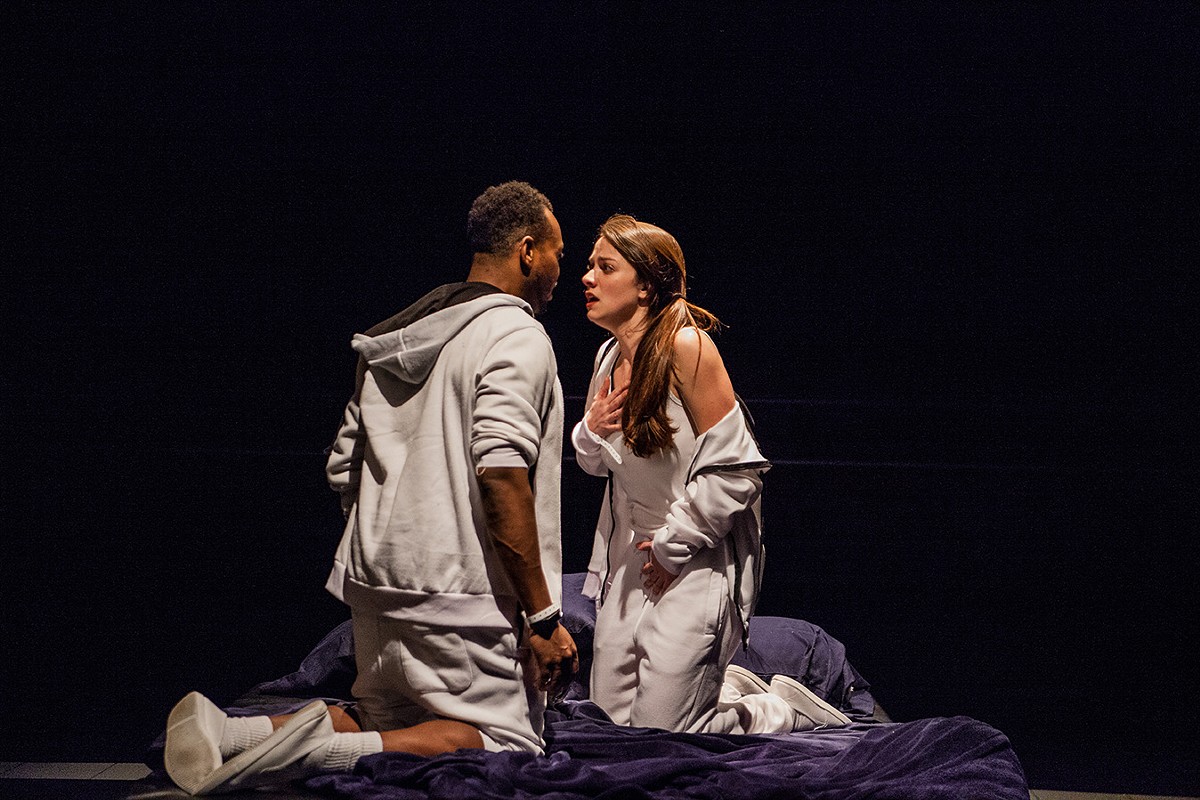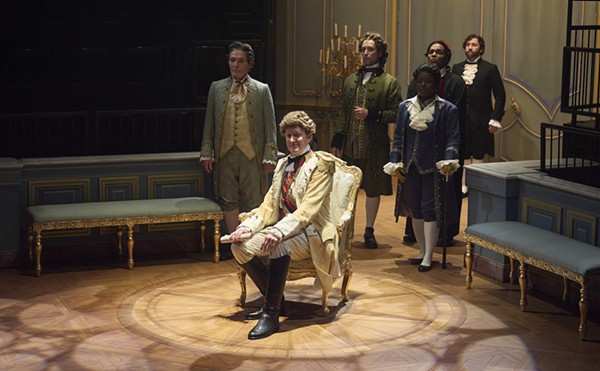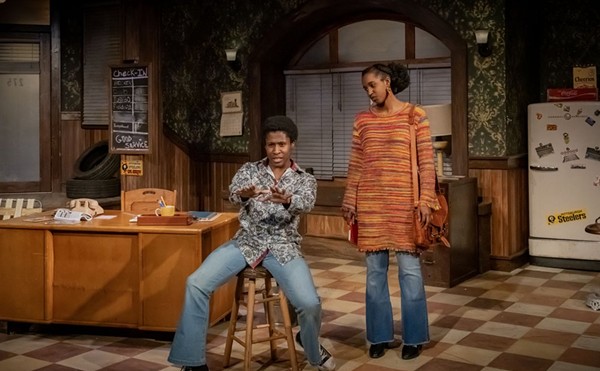Ever wonder how your life is influenced, sometimes second-to-second, by the neurochemicals that flow through your brain? Most of these are naturally occurring molecules that excite or inhibit us, allowing us to think, move, screw and pretty much behave like human beings. In other words, we are all little bundles of neurochemicals wandering around and bouncing into each other.
Golly, Mr. Wizard, what does all this have to do with theater? Well, Bobby, I'm glad you asked! In her play The Effect, now at Dobama Theatre, Lucy Prebble has written a fiendishly clever four-person exploration into how people encounter the world and interact with each other, due to their ever-changing neurochemical makeup.
If summing up how people feel and fall in love seems like a daunting task to cover in two-and-a-half hours, you'd be right. While the seams of this story are sometimes stretched to the breaking point, as the playwright maneuvers her characters into positions where Big Issues can be addressed, the crisp staging and fine performances eventually carry the day and bathe the audience in brain-pleasing endorphins.
We meet thirty-somethings Connie and Tristan as they are being questioned by a doctor in a medical setting. Turns out they have been selected, and will be paid, to participate in a four-week trial for a new antidepressant drug. They will be dosed on a daily basis while they remain sequestered on site, with all their bodily functions closely monitored and documented on computer screens.
Physical interaction between the two subjects is strictly forbidden. But being humans whose chemicals are being plucked by the drugs they are ingesting, things don't go exactly according to plan. In fact, on one day early in their stay the two guinea pigs find themselves attracted to each other and sneak out to an abandoned mental hospital nearby, where they start to do their own research.
Meanwhile, back in the physician's lounge, Dr. Lorna and Dr. Toby are discussing their conflicting views of neurochemicals and their effects. Toby is all about the drugs, and he glories in the miracles that these new pharmaceuticals can achieve, rescuing psychiatry from being the "Cinderella of medicine." Lorna begs to differ, positing that depressed people actually may have a clearer view of the real world. Their discussion is clouded by the fact that Lorna has a personal history of depression ("I feel I'm dead, but my body hasn't caught up") and their own intimate relationship in the past.
With all that on the table, the playwright dives in to examine how Connie and Tristan get together — is their attraction "genuine" or is it the result of the drugs kicking their dopamine levels to new heights? And then we learn that one of the test subjects may be on placebos, and that even Dr. Lorna herself may be under scrutiny for "practitioner bias."
It's all a fascinating plunge into very heady material, and it could fall apart without the finely modulated performances under the tight direction of Laley Lippard. As the outgoing and slightly goofy Tristan, Ananias J. Dixon infuses the stage with an almost manic energy that plays well off of Olivia Scicolone's more measured Connie. The arc of their budding relationship feels right, culminating in the Act 1 closing scene where the couple throws all restraint, and clothing, to the winds. That extended sexual tryst is sweaty, passionate, playful and profound — setting the stage for the plot twists that occur after intermission.
The two doctors don't come off quite as fully, since they are burdened with carrying a lot of the playwright's thematic baggage. But Joel Hammer as Toby conveys a solid mien of confidence with just the right touch of arrogance. And his "brain-in-a-bucket" speech to his colleagues is a gem.
As the more conflicted Dr. Lorna, Derdriu Ring captures a delicate mix of the personal and the professional. She can rattle off a wry and knowing line ("The history of medicine is the history of the placebo") with white-coated assurance while simultaneously quivering with vulnerability in the face of her own demons.
The performers are given a splendid playground, with scenic designer Cameron Michalak's spare, sterile multi-purpose set, surrounded by audience seating, and T. Paul Lowry's projection designs. Those projections dance accompaniment not only on screens set in four corners of the theater space but also on the floor, illuminating a border of white squares that serve as the visual ropes for this DNA-soaked boxing ring.
Sure, playwright Lippard tries to force a bit too much scientific theory and soulful speculation into the mouths of her characters. And the deus ex machina ending is a bit too tidy. But the risks that are taken here are often surprising, and the immersive intellectual challenges continually tweak and tantalize. The result is a theatrical experience that is far from a placebo.













